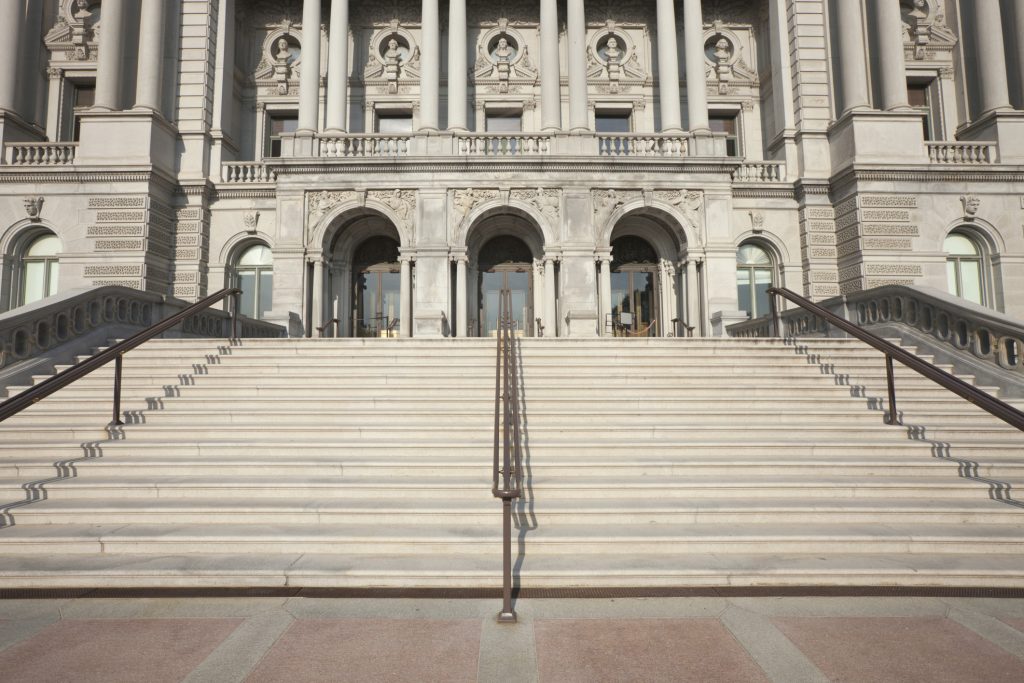Library of Congress Computer Failure Buttresses Call By the Register of Copyrights for Autonomous, 21st Century Copyright Office
The Library of Congress got its computer systems back online Sunday, after scheduled maintenance turned into a more than week-long, building-wide, IT failure that took the U.S. Copyright Office’s electronic registration system down with it. By Thursday, the Washington Post was reporting the outage was already “costing the office $650,000 in lost fees and causing headaches for approximately 12,000 customers.” On average, the Copyright Office receives somewhere between 1,500 and 2,000 online registrations daily. As Register of Copyrights Maria Pallante told the Post with understandable frustration, this situation was “ridiculous.”
As a result of the e-registration outage, applicants could not file their applications electronically, and had to submit more expensive paper applications that can take more than eight months to process. The outage also meant that copyright applicants could not track the status of pending registration applications or check the balances on their deposit accounts. The outage had a significant impact on creators of all types, including movie studios as well as tens of thousands of songwriters, authors, artists, photographers, and other individuals who rely on the registration system to protect their ability to make a living at their craft.
For months, Register Pallante has been highlighting the need to create an autonomous and more modern Copyright Office to better serve the needs of creators and the public in the digital age. This latest occurrence provides one dramatic example of why legislative action is so urgently needed.
The Copyright Office administers the vital U.S. copyright registration and recordation systems; serves as Congress’ expert advisor on copyright law; and provides information and assistance to federal agencies and departments on domestic and international copyright matters. The Office works in parallel with the Patent and Trademark Office, which serves a distinct and important function as the policy voice of the Executive Branch on copyright matters.
The Copyright Office is just one division within the Library of Congress, however, making copyright just one in a broader portfolio of issues over which the Librarian of Congress has responsibility, all of which have national significance. Because copyright has become such an important issue in its own right, it makes sense to let the Copyright Office run its own ship and set its own priorities, subject to the usual budget constraints.
The core copyright industries—those primarily engaged in creating, producing, distributing and exhibiting copyright works—now contribute more than $1 trillion to the nation’s GDP, represent 6.7 percent of the U.S. economy, are responsible for 5.5 million jobs and contribute $156 billion in foreign sales and exports, exceeding that of many other industry sectors.
Copyright is a key pillar of our nation’s cultural and economic prosperity. Combine that with the rise of the digital economy, and you quickly see why the demands on the Copyright Office have grown ever more complex and important. But as it exists today, the Copyright Office is hindered in its ability to rise to the challenges of a dynamic and ever-growing creative marketplace; what it needs is greater autonomy and better tools to serve both the copyright community and the public at large.
Even before this latest power outage, it has been clear that the Library of Congress’ infrastructure—electronic and otherwise—has fallen woefully behind the times. According to Register Pallante, not only does it take over 8 months for paper applications, electronic applications often take 3.3 months or more.
A report earlier this year by the Government Accountability Office noted the outdated and inefficient systems being used by the Copyright Office, and Register Pallante has spoken out on several occasions about the Office’s need to implement a modern, nimble IT infrastructure able to address the needs of today’s creators. The Copyright Office needs modern, dedicated IT systems of its own, rather than jury-rigged systems appended to those designed for another purpose. More generally, it should have discretion over its own resources and how to allocate them; it shouldn’t have to compete with the Library’s other priorities, however important. This also would provide the next Librarian a clearer plate from which to engage in a needed refocus on the Library’s core mission, in light of clear evidence that the Library is stretched beyond its limit. (Dr. Billington, the current Librarian, has announced his intention to retire Jan. 1, 2016.)
While there are a wide range of differing views on copyright and copyright reform, nearly everyone can agree on the need to restructure and modernize the Copyright Office. In addition to the MPAA, a wide range of think tanks and advocacy groups, including the Software & Information Industry Association, the Copyright Alliance and the Copyright Office itself have all expressed support for a change of course. This past June, Congressman Tom Marino and Congresswoman Judy Chu circulated a draft proposal to address many of the longstanding reforms needed in the Copyright Office, which was a good start to the discussion. Other legislators are also focusing on this issue. As this latest IT problem demonstrates, Congress needs to act now to make this important office function properly in the digital age.


